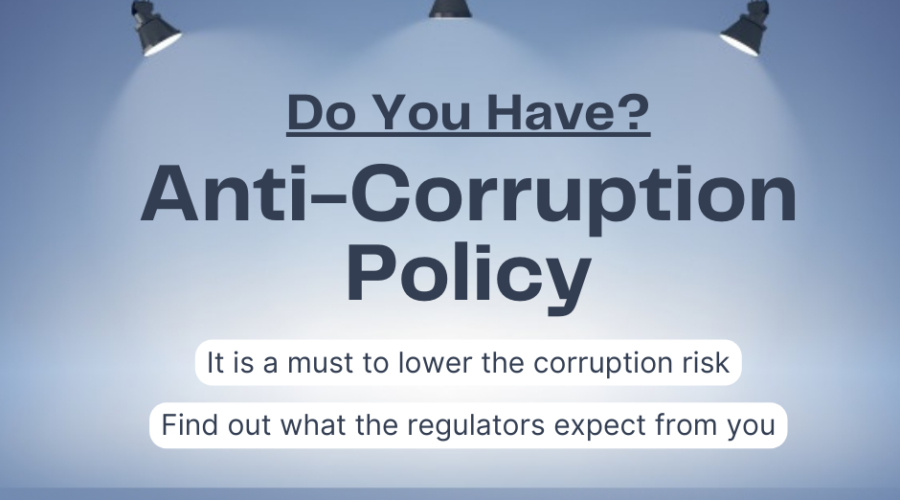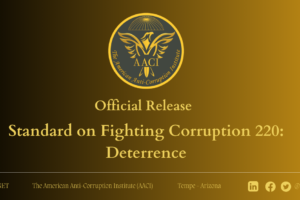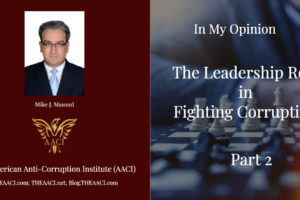Technical Staff
February 20, 2023
An anti-corruption policy is a set of guidelines and procedures a company establishes to prevent, deter, detect, and correct corrupt practices on time. The policy outlines measures that employees and business partners must follow to prevent corruption, bribery, fraud, and other unethical practices, as well as the company’s commitment to ethical business values and methods. An effective anti-corruption policy should be backed up by an effective internal control system that aids policy monitoring and enforcement.
Internal control should include segregation of duties, regular audits, and risk assessments to prevent, deter, and detect fraudulent activities. These controls aid in identifying areas of vulnerability and ensuring that the necessary steps are taken to avoid corrupt practices.
An independent and effective judiciary is also required for the anti-corruption policy in the private sector to succeed. An independent judiciary can ensure that corruption cases are fairly investigated and prosecuted and that wrongdoers are held accountable for their actions. This can be a solid deterrent to potential wrongdoers and help foster a culture of anti-corruption compliance.
Further, effective corporate governance is a fundamental component of anti-corruption policy. It entails, at the minimum, the following steps:
- Formulating and implementing a well-written organizational strategy
- Developing a transparent culture.
- Promoting ethical values and behavior throughout the organization., and
- Implementing a well-designed whistleblowing policy
Top leadership must commit to ethical values and standards, including the board of directors and senior management.
Assistant Attorney General Kenneth Polite asserted in his speech at the University of Texas last September the following:
The reliance solely on prosecutions to secure public safety and promote sound corporate governance is deemed inadequate. As with any criminal activity, the primary aim is to prevent corporate crime from occurring in the first place. The highest priorities in these cases are:
- The avoidance of harm to innocent investors.
- The preservation of trust in the integrity of markets.
- The prevention of the damaging impacts of corruption.
- The avoidance of taxpayer exploitation.
This objective is achieved through deterrence, which is accomplished by holding individual offenders accountable and establishing a regulatory framework that encourages responsible corporate behavior.1
The AACI, stakeholders, and regulators expect organizations to invest in effective governance, internal control, internal audit, compliance, and transparency to lower the risk of corruption to acceptable low levels.
###
Disclaimer: It is important to note that this is our opinion regarding the subject matter. It is not intended to provide legal analysis or professional advice. Individuals and entities should seek the advice and opinion of appropriate advisers on specific questions and practices related to their unique circumstances
Sources:
1. Assistant Attorney General Kenneth Polite. Dallas, TX. (2022, September 16). Assistant Attorney General Kenneth Polite Delivers Remarks at the University of Texas Law School. Retrieved from https://www.justice.gov/opa/speech/assistant-attorney-general-kenneth-polite-delivers-remarks-university-texas-law-school , Accessed on February 19, 2023.
2. Effective Internal Control, Effective and Good Governance, Independent and Effective judiciary, and Investment in Corruption Prevention are among the Ten Principles of Fighting Corruption promulgated by The American Anti-Corruption Institute (AACI).
Read more on https://blog.theaaci.com/malta-chamber-the-ten-principles-of-fighting-corruption/










































